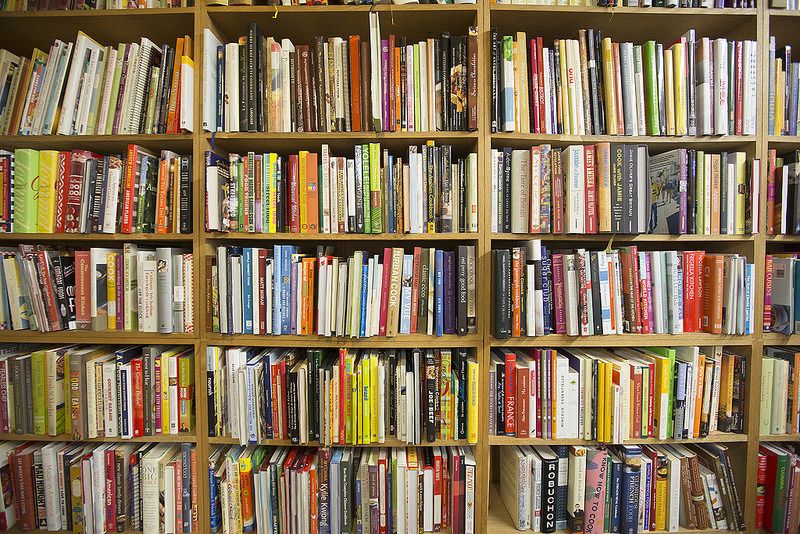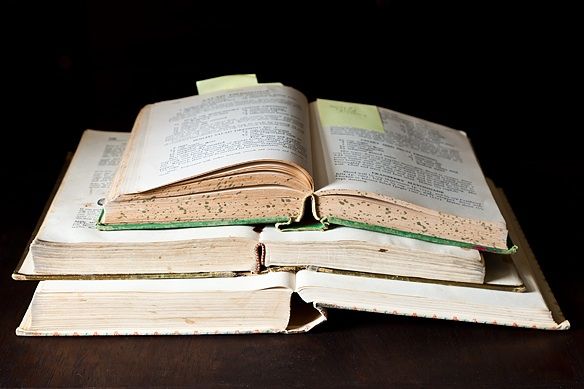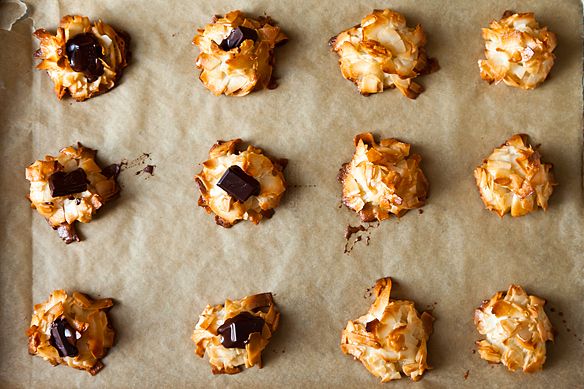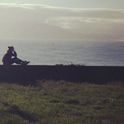We're sitting down with our favorite writers and cooks to talk about their upcoming cookbooks, their best food memories, and just about anything else.
Today: Find out which cookbooks Matt Sartwell, the manager of New York's Kitchen Arts and Letters, loves the most -- and how he cooks at home.


The home cook is a special species of hoarder: Most of us have shelves and boxes and, er, floors that are stacked and stuffed to the gills with cookbooks. We have restaurant books, blogger books, passed-down-from-mom books, and shiny new specimens that can't be touched without a white glove. Just like Miley, we can't stop. And we won't stop.
And just as we can't stop talking about turkey and pie once November rolls around, we can't stop talking about cookbooks during Piglet season. So naturally, we turned to Matt Sartwell, manager of New York's much-beloved Kitchen Arts and Letters, to hear about which books he holds the dearest. Filled with over 12,000 food-related titles, Matt's store is an important destination for chefs and home cooks alike, and houses one of the country's greatest collections of rare and out-of-print cookbooks.
More: Read the latest Piglet judgment right here.
So read on to find out where Matt's love for cookbooks started, which books he loved this year, and just how important he thinks photographs really are.

Where did your interest in cookbooks begin?
It's hard to assign a date to it. I can remember being interested in cooking long before I was interested in cookbooks, but there are some books that stand out in my memory -- like my mother's copy of Betty Crocker's New Picture Cookbook, in which she had penciled notes about recipes she liked or disliked. I can remember "No Taste!" being written next to one. The Silver Palate Cookbook was my introduction to a huge range of ingredients that were not a part of my mother's pantry. Green peppercorns? Flat-leaf parsley? I began to understand then that recipes and cookbooks were not just ways to make good food, but to experience a bigger part of the world.
How has the increasing popularity of online shopping -- and online media in general -- affected your business?
We know that people call us and pick our brains for suggestions and input, then the buy books elsewhere. It's a pity, really, because they want someplace like us to exist but they don't want to support it. On the other hand, we get great support from our friends and customers in social media and that gives us the warm fuzzies quite often. We are going to have limited eCommerce soon -- we have too much hard-to-find stuff that deserves a wider audience not to make that happen.
What cookbooks were you most excited about in 2013?
I've been a big supporter of [Aki] Kamozawa and [Alex] Talbot's Maximum Flavor since we got uncorrected proofs last spring. I think they're amazingly talented and smart. And for anyone who's ever said that modernist cooking techniques will always be limited to restaurant kitchens, they're proof that innovations do migrate and that they can make a big difference in home kitchens. I was really happy to see Kristen Miglore's Genius piece about their chicken wing technique because that's a great example [of a recipe] that produces great food.
I'll admit that my personal collection is pretty small, given that I spend 6 days a week in a store with 12,000-plus titles. But among the other books I was delighted to see come in the door were Suzanne Goin's The A.O.C. Cookbook -- based on my success with Sunday Suppers at Lucques from a few years ago.
More: Make these Genius chicken wings for your next party.

Which books do you turn to the most for reference?
Harold McGee's On Food and Cooking. Sharon Tyler Herbst's The Food Lover's Companion. And Cucina Fresca by Evan Kleiman and Vianna LaPlace. I hardly ever cook the recipes but the book puts me in the right frame of mind to use what I have in the refrigerator.
What does your own personal cookbook collection look like -- do you cook much at home? Do you cook from recipes?
I bake from recipes, and accordingly my home collection is more heavily baking books, such as Emily Luchetti's Stars Desserts, Peter Reinhart's Whole Grain Breads, and Alice Medrich's Chewy Gooey Crispy Crunchy. For my weeknight cooking, I'm often trying out recipes I have scrawled down from new books at the store, and those are cases where I follow a recipe to get to know the author's style. But left to my own devices, I tend to fall back on familiar techniques using whatever looked good at the market on the way home.
More: Get Alice Medrich's cookie-baking tips.

How important do you think photos are in a cookbook?
I like great photos. They are definitely inspiring, and in some areas -- like professional cookbooks where the plating of the food is a huge part of the art -- they're essential. That said, it breaks my heart when people say "I can't cook from that book. It doesn't have any photos." I worry that soon people won't order food in a restaurant without being shown a picture of it first. You have to be capable of making a leap of faith if you ever expect to expand your skills and eat something new and exciting.
Photo of Matt courtesy of Kitchen Arts and Letters; shelf photo by Chelsea Curtis; book photo and wing photo by James Ransom.







See what other Food52 readers are saying.